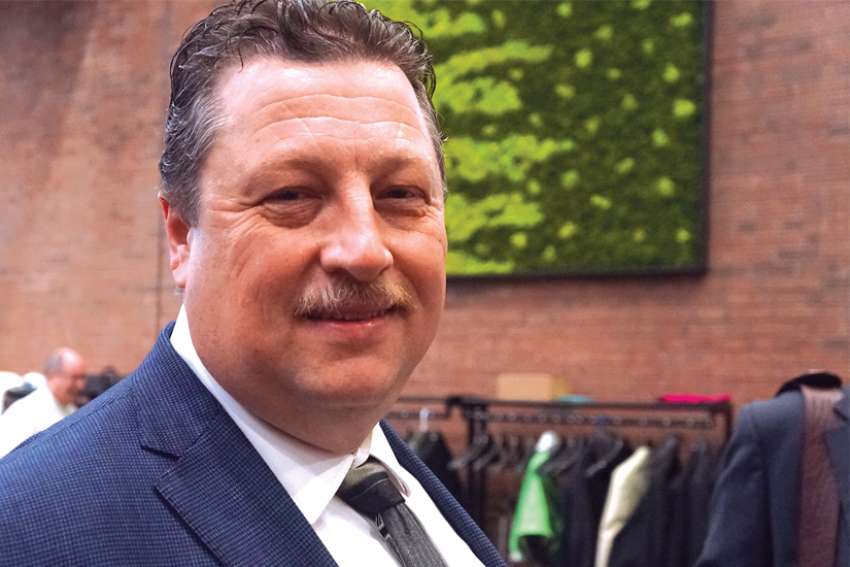Compared to the persecution of Christians elsewhere in the world, “we have it pretty good,” David Guretzki, executive vice president and resident theologian of the Evangelical Fellowship of Canada, told the annual gathering of the Canadian Conference of Catholic Bishops (CCCB) on Sept. 24 as part of an ecumenical and interfaith panel on religious freedom.
Most of the current challenges to religious freedom in Canada are “annoyances, inequities and in some cases injustices,” Guretzki said. “In and of themselves they have not prevented the people of God, the Church, from carrying out her mission.
“They may destroy careers, or inhibit places where the Gospel word may be formed,” he told the more than 80 bishops and eparchs who met in plenary session from Sept. 23-27.
Guretzki gave as examples the refusal of Canada Summer Jobs (CSJ) grants to Bible camps and pregnancy care centres, the Trinity Western University Supreme Court decision that denied law students accreditation in law societies even before the law school opened, and the injustice Ontario physicians face regarding conscience rights when it comes to euthanasia, abortion and other morally questionable procedures.
He also decried Bill 21 in Quebec forcing public servants, teachers and other government employees to remove any religious symbols or headgear.
Those implementing these policies may see them as “tests for future appetites for restrictions on religious freedom,” Guretzki said.
This could be “cultural preparation and normalization for a future day when formal restrictions on the practices of religion may be introduced.”
“Religious freedom is still materially operative in Canada, but we sense in our own community that Christians are beginning to experience an emerging level of angst and fear,” he said.
Guretzki named five areas religious communities need to challenge government: conscience protections for those in the medical field, denial of CSJ funding on faith and moral grounds, increased pressure in the workplace for people to participate in “ideologically-driven events” contrary to religious beliefs, legislative action against “so-called conversion therapy” that may target normal Christian counselling, and Quebec’s Bill 21.
Rabbi Reuben Joshua Poupko, Rabbi of Beth Israel Aaron Congregation in Montreal and co-chair of the Canadian Rabbinic Caucus (CRC) and co-chair of the CCCB-CRC national dialogue, told bishops it was a “profound irony” that a rabbi is speaking to a Catholic group “when the single most persecuted group in the world” are Christians and the Catholic Church.
“It is the Christian church being persecuted in places like China and the Middle East,” Poupko said. “The tragic irony is that in our culture in North America, if someone were to speak about my faith or the Islamic faith the way Christians are spoken about, they would be completely disparaged for their racism and bigotry.”
At home, he noted that Quebec’s Bill 21 enjoys “overwhelming support” in all parts of Quebec. However, although he has experienced little anti-Semitism during his 30 years in Quebec, he has for the first time experienced people shouting at him. He said the secularism debate has “poisoned the religious environment.”
While the province is still a “welcoming and tolerant society,” the bill “has made certain elements feel emboldened,” Poupko said.


